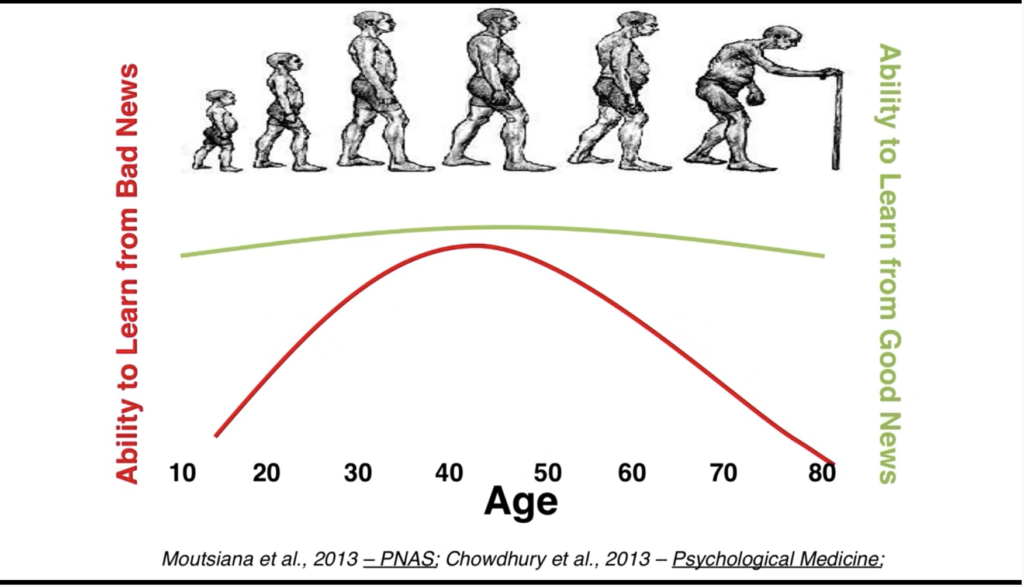Eight years ago I wrote a short post (very very short) that expressed motivation and psychological health that I have been thinking more about.
It’s pretty incredible how much how much the world can change in just a few of years, and how quickly people can adopt, mentally and emotionally. What is it that motivated me then and what motivates me now? Am I the only one pondering this, or is it the zeitgeist?
I been meaning to kickstart some projects again, but encountered friction in the form of procrastination or mental exhaustion. Am I becoming lazy? Or am I disillusioned? or is it just a lack of motivation? Why am I postponing my projects?
I remember watching a video by Tim Urban about procrastination and re-watched it for clues:
I did not find much there that resonated with my current state, so I looked some more and found this TED talk video “How to motivate yourself to change your behavior” by Tali Sharot that reveals three ingredients to doing what’s good for yourself.
Tali Sharot talks a how people learn from negative and positive experiences and how that changes as you get older. She also mentions a study that tracks hospital staff and the amount of times they sanitize their hands before entering patients rooms. There is also a study that shows “a signal in the emotional center of the brain when you hear about opinions from others” and how that impacts and predicts an individual’s likelihood to conform at a later time and change your behavior.

Some interesting highlights:
Social Incentives
Immediate reward, instant gratification
Progress over time
Highlight what others are doing. An example is used about electricity use. Comparing your consumption of electricity to others in your city and positively gratifying with a smiley face to tell you that your are doing “Good” along with a chart that shows you your consumption over time.
If a young kid is smoking, instead of saying “Stop or you’ll die of cancer” a better strategy may be to say “Stopping now will make you better at sports” to highlight progress and potentially highlighting that really good athletes don’t smoke to bring into context what others are doing.
I looked up cognitive biases that deal with reward systems and found the Present bias which is “the tendency to rather settle for a smaller present reward than to wait for a larger future reward, in a trade-off situation. It describes the trend of overvaluing immediate rewards, while putting less worth in long-term consequences.”
Hmm, all this seems to be in the realm of how I feel at the moment. Maybe at some point I realized that my hard work was not panning out to anything and was even potentially loosing more than I was gaining. So why keep working so hard at things that may seem impossible or really hard to do? Why attempt the hard goal, when the easy more secure path is sure to reward you? Maybe not as much of a reward, but enough to be content.
The Ted talk was great, but left me with more questions than answers. How do I self-motivate to do the hard things again? Should I even try to motivate myself to try again?
I feel like I have wasted two good years of my life, sitting at home going with the flow, when I could have been tinkering with things and making projects come to life! Why did I do that?
The psychology of self-motivation | Scott Geller
I stumbled into another TED talk about motivation that reminded me of an important factor for motivation—Community.
This talk has great quotes about motivation:
“If you feeling competent at doing worthwhile work, you are more likely to be self-motivated” ~Scott Geller
“When you believe you have autonomy and a sense of choice in what you are doing, you feel more self-motivated.” ~ B.F. Skinner
Beyond freedom and dignity 1971.
“I am controlled by consequences” vs Not feeling controlled, when working for a pleasant consequence, it feels good—like you are working to get something.
It also has great correlations:
Negative re-enforcement = Feel Controlled (Failure avoiders)
Positive re-enforcement = Feel Self-motivated (Success seekers)
Challenge:
How to get people to be Success seekers vs Failure avoiders?
3 questions to see if someone feels empowered (feel competent):
Can you do it ? (The job/project/task)
Will it work? (Figure out how to measure success)
Is it worth it? (Cost of accomplishing goal)
After digesting all this content, one thing started to make sense about my own goals… they had changed, but did not realized it—yet I was still pursuing my old goals. With that realization, I can go back to the drawing board and create a new strategy for myself. I cannot emphasize how good that feels.
And just like that, motivation is back.
Leave a Reply